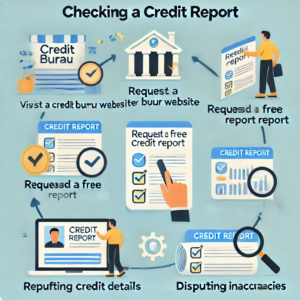Learn everything about credit, its importance, types, and how to build and maintain a good credit score. Essential tips for financial success.

Understanding Credit: A Guide to Financial Success
Credit plays a crucial role in personal finance. It affects your ability to borrow money, purchase a home, and even secure a job. In this guide, we’ll explore the fundamentals of credit, how it works, and best practices for managing it effectively.
What is Credit?
Credit is the ability to borrow money or access goods and services with the promise of paying later. It is typically extended by financial institutions, lenders, or businesses. The better your credit history, the more financial opportunities you will have.
Importance of Credit
- Loan Approval: Lenders check credit scores before approving loans.
- Interest Rates: A good credit score can help secure lower interest rates.
- Employment Opportunities: Some employers review credit reports for financial reliability.
- Housing: Landlords may assess creditworthiness before renting out properties.
Types of Credit
There are several types of credit that consumers can use to manage their financial needs:
- Revolving Credit: This includes credit cards and lines of credit where you can borrow repeatedly up to a limit.
- Installment Credit: Loans such as mortgages and car loans that require fixed payments over time.
- Open Credit: Bills like utilities where the amount varies but is paid in full each month.

How to Build and Maintain a Good Credit Score
Maintaining a high credit score is essential for financial health. Here are some tips:
1. Pay Bills on Time
Late payments can negatively impact your credit score. Setting up automated payments can help ensure you never miss a due date.
2. Keep Credit Utilization Low
Using less than 30% of your total credit limit shows responsible credit management.
3. Regularly Check Your Credit Report
Review your credit report for errors and dispute any inaccuracies. You can get a free annual report from major credit bureaus.
4. Avoid Opening Too Many Accounts at Once
Multiple credit inquiries in a short period can lower your credit score. Apply for new credit only when necessary.
5. Maintain a Long Credit History
The longer your credit history, the better. Keep older accounts open to demonstrate responsible financial behavior.

Common Credit Mistakes to Avoid
- Missing Payments: This can drastically lower your credit score.
- Maxing Out Credit Cards: High credit utilization affects your creditworthiness.
- Ignoring Credit Reports: Unchecked reports may contain errors that impact your score.
Tools to Monitor and Improve Credit
Several online platforms provide tools to help track and improve credit scores. Some popular options include:
- Credit Karma (External Link)
- Experian Credit Report (External Link)
- MyFICO Score Monitoring (External Link)
Internal Links:
- How to Save Money Effectively
- Personal Finance Tips for Beginners
- Understanding Loans and Interest Rates
Conclusion
Understanding and managing credit is essential for financial success. By following responsible credit habits, monitoring your credit report, and avoiding common mistakes, you can maintain a healthy financial profile. Start building a strong credit foundation today for a secure future.
Frequently Asked Questions (FAQs)
Q1: How long does it take to improve a credit score?
It depends on your financial behavior, but improvements can be seen within a few months to a year with consistent good practices.
Q2: Can I get a loan with bad credit?
Yes, but the interest rates will be higher. Some lenders offer loans specifically for individuals with poor credit.
Q3: How often should I check my credit report?
It’s recommended to check your credit report at least once a year to identify errors and track your progress.